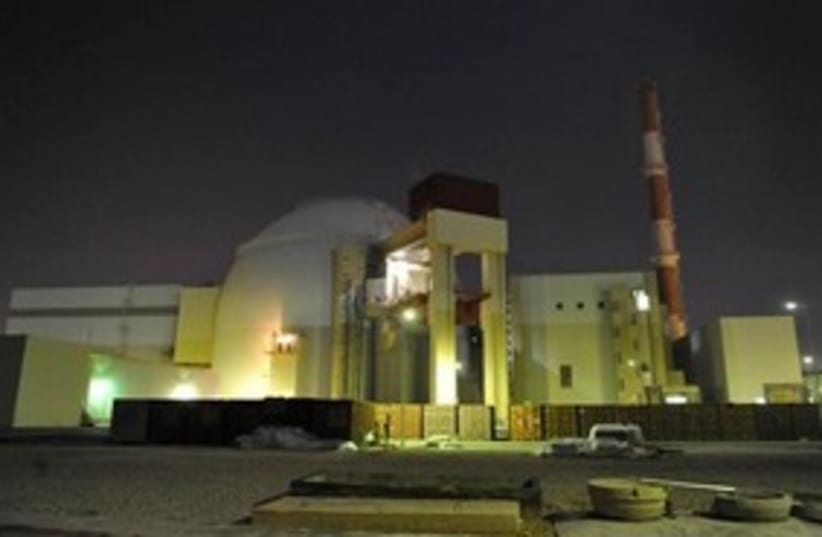Iran has enough low-enriched uranium to produce one to two nuclear weapons, but it would not be logical for it to cross the bomb-making threshold, said former UN chief of nuclear inspections Olli Heinonen in an interview with Le Monde Thursday which was cited by Reuters.Heinonen called Iran's nuclear program a "threat" in a rare public interview, given shortly before he stepped down from his position as deputy director-general of the International Atomic Energy Agency. Heinonen was head of the IAEA's nuclear safeguards arm, which monitors countries' nuclear programs to make sure they are intended for peaceful use. Heinonen left the post in August for personal reasons.RELATED:Russia: Israel need not fear reactor'Israel has days to strike Bushehr'The Finnish former director-general was an expert on Iran's nuclear program, Reuters said. Iran is suspected of creating the program with intent to develop a weapon, although Teheran insists the program is peaceful.Heinonen said Iran has three tons of low-enriched uranium, which if refined much further could fuel a bomb. "In theory, it is enough to make one or two nuclear arms," he told Le Monde. "But to reach the final step, when one only has just enough material for two weapons, does not make sense." He was interviewed just before he left office.Iran has asked Russia to join forces in establishing a nuclear consortium to supply fuel for the newly operational Bushehr plant, as well as other plants due to begin functioning in the future.According to reports on Thursday, Iranian Vice President and nuclear chief Ali Akbar Salehi told state news agency IRNA that the proposal to Russia was made "for the creation of a consortium, licensed by that country, to do part of the work in Russia and part of it in Iran."He continued: "Moscow is studying this offer. We (Iran) should show the world our capability in uranium production and transforming it to nuclear fuel."On August 21, Russia began fueling Iran's first nuclear power plant in Bushehr, and has committed to doing so for the next ten years.Bushehr's inauguration was a major milestone for Iran as Teheran forges ahead with its atomic program despite UN sanctions."Despite all pressure, sanctions and hardships imposed by Western nations, we are now witnessing the startup of the largest symbol of Iran's peaceful nuclear activities,"Salehi told reporters inside the plant.Russia, which helped finish building the plant, pledged to safeguard the site and prevent spent nuclear fuel from being shifted to a possible weapons program. After years of delaying its completion, Moscow says it believes the Bushehr project is essential for persuading Iran to cooperate with international efforts to ensure Iran does not develop the bomb.
The United States, while no longer formally objecting to the plant, disagrees and says Iran should not be rewarded while it continues to defy UN demands to halt enrichment of uranium, a process used to produce fuel for power plants but which can also be used in weapons production.Although Iran says they currently have enough fuel to operate Bushehr for one year and that they will continue to enrich uranium, they have also stated that they do not intend to produce all the nuclear fuel domestically in the future. AP contributed to this report.
'Iran's nuclear program is a threat'
Former UN nuke chief says Teheran a year away from building 1-2 bombs.
